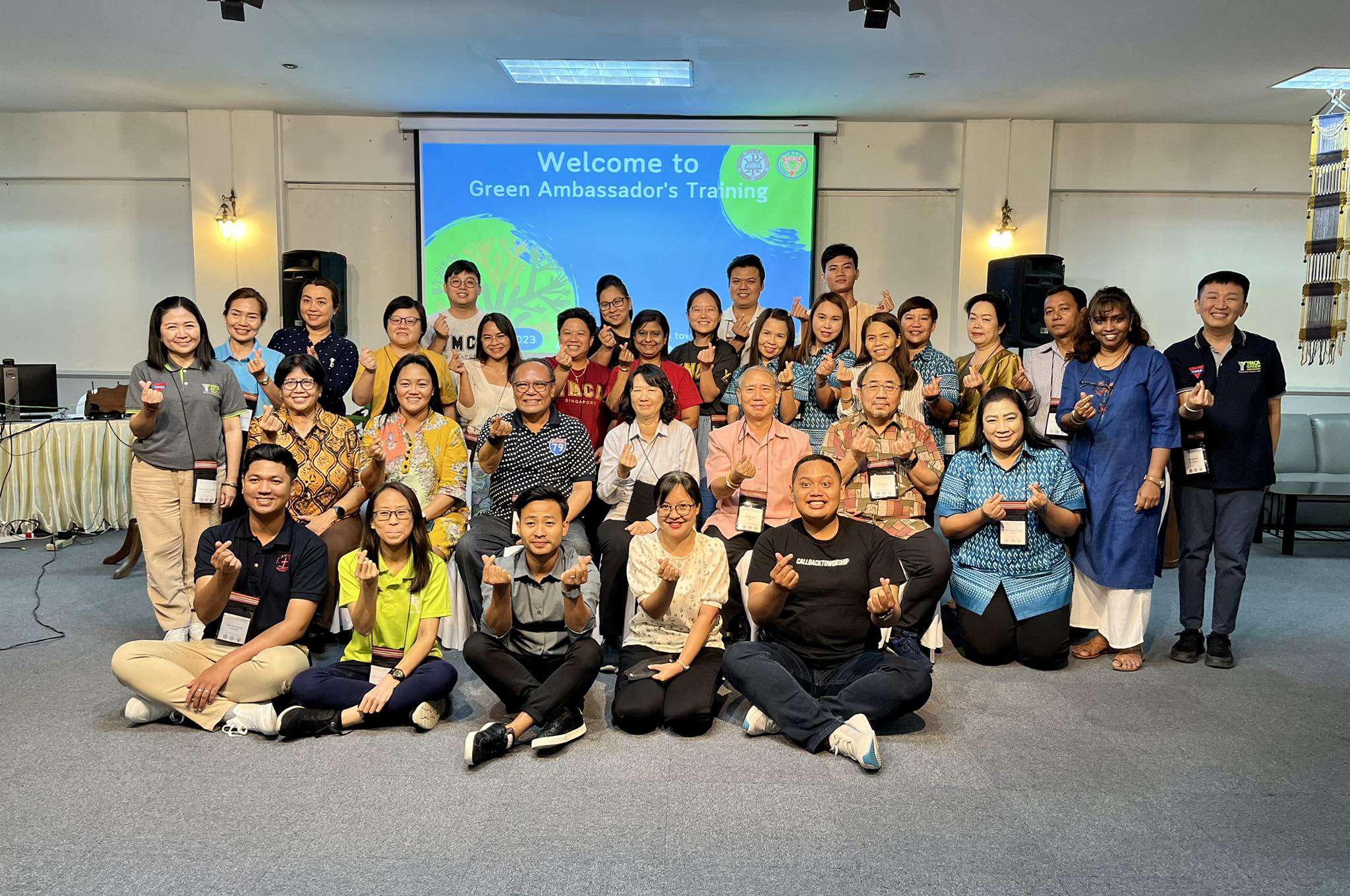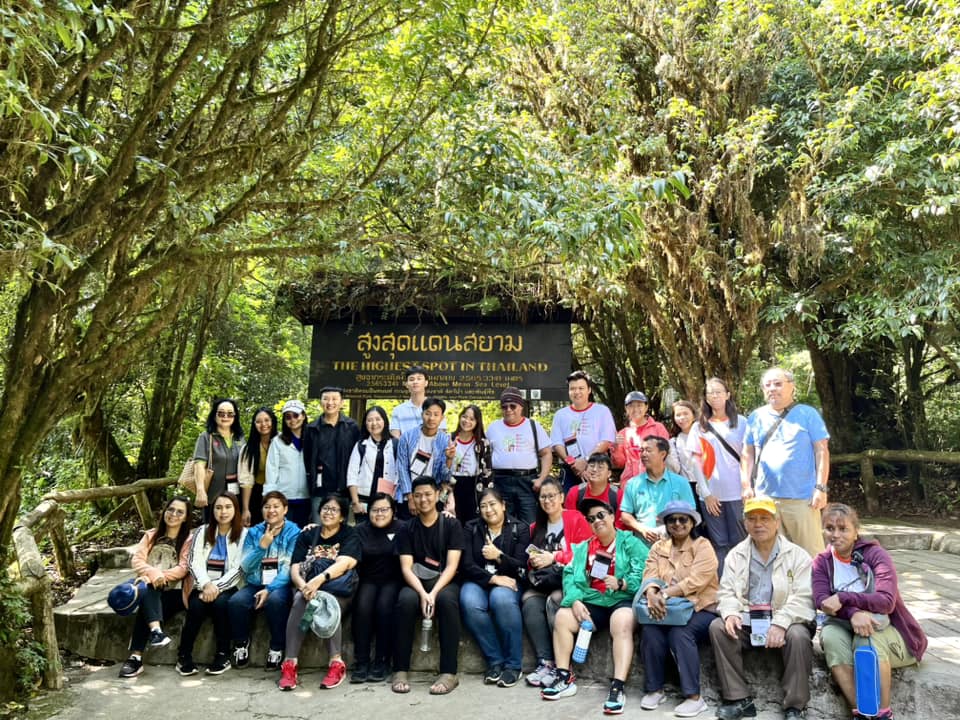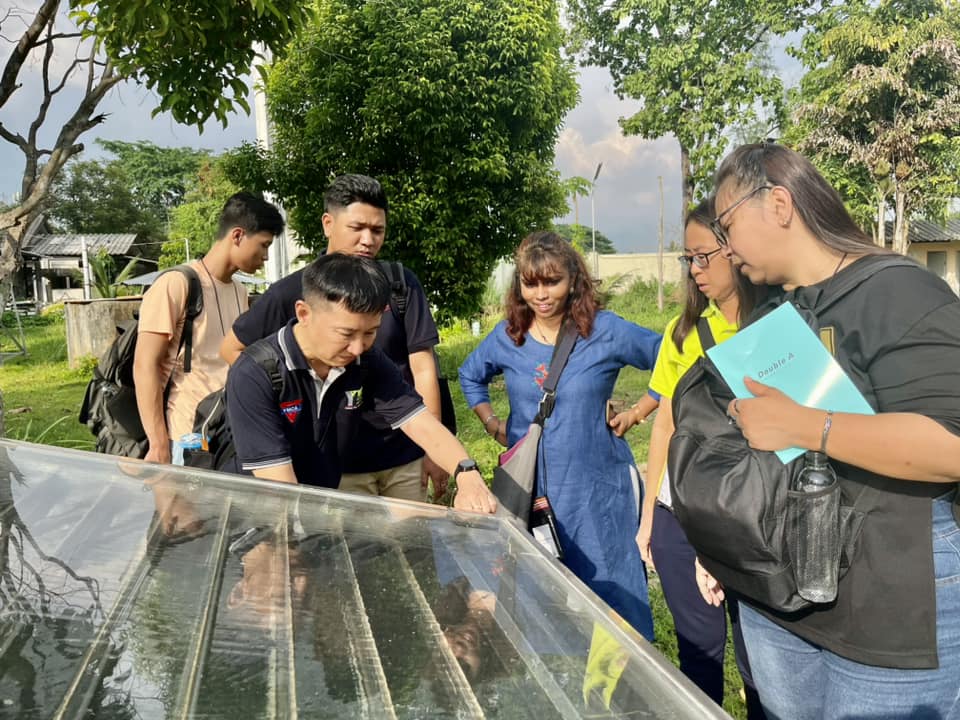‘Time for Climate Action Towards YMCA Vision 2030’ - Green Ambassadors Training 2023
Last Updated (Wednesday, 31 May 2023 11:36)
Around thirty-five participants from the YMCAs of Malaysia, Myanmar, Philippines, Singapore, and Thailand met in Chiangmai, Thailand last May 22-27, 2023 to learn about climate change and its impact to people and communities; to engage in dialogue on enhancing ‘Green Ambassadors’ capacity for environment and climate change action to secure net zero by 2030 to keep global temperature 1.5 degrees within reach; to share good practices on carbon emission reduction and other green project; and to strengthen cooperation, network and green movement towards a Greener YMCA and communities. The training was also joined by the Y Green Schools from Thailand and Laos as partner schools of YMCA of So Hin YMCA in its effort to combat climate change.
 |
| ↑ Participants during the opening session |
The training included key presentation by Colin Lambie, APAY Green Team Member on the current climate change situation in the Asia and Pacific region and how governments are failing to limit warming to 2C or preferably 1.5C. He emphasized that YMCAs and like organisations must ‘pick up the slack’ and make up for lack of action by governments through mitigation and adaptation actions. He also reiterated the Mandate of the 20th APAY General Assembly in Japan that the YMCAs in the region commit to reducing the carbon emissions and taking effective steps to become carbon neutral by 2030. In his presentation, he highlighted the steps on how to become zero net carbon by 2030. It also incorporated case studies from Green Ambassador graduates and Green Team members who have successfully implemented climate action in their respective YMCAs. The case studies presented highlighted the works on carbon audit, education and advocacy as tools to combat climate change. The following case studies were presented:
- Installation of Solar Panel, YMCA of Makati, Philippines
- Integrated Agriculture and Food Security; Nay Pyi Taw Young Men's Christian Association (YMCA)
- Environment and Climate Change Education Learning Center; Sao Hin YMCA, Thailand.
In addition, APAY Climate Defender Project Coordinator Beng Seng Chan shared the current activities under the said project that will continue to work on the aim of becoming a zero net carbon YMCA. Such activities include education and awareness raising, training of carbon auditors, and e-learning among others. The training also included exposure trips to partner institutions:
- School of Renewable Energy; Mae Jo University (alternative energy in daily life i.e. solar power, biogas, biomass, wind Power, etc.)
- Environment & Energy Learning Center Sao Hin YMCA
- Doi Inthanon Royal Project (alternative crops to solve the problems of deforestation and poverty of the hill tribe people; environment protection, reduce the use of chemical, agriculture development, and marketing system
- Co-management of Natural Resources (to see the highest spot in Thailand on the top of Inthanon Mountain, visit the nature trail and learn about the important of cloud forest, biodiversity and role of community and government in forest conservation
- Ban Rai Dong Village, the model village on environmental and natural resources to preservation to learn about appropriate technology and the advantage of check dams; construct check dam and plant trees with the youth and committee members of Rai Dong Village, Chomtong District.
 |  |
| ↑ Participants during their nature trail at Doi Inthanon National Park | ↑ Visit at Maejo University School of Renewable Energy |
In preparation for the participants discussion and planning session, Narupacha Muang-in, APAY Green Team Member and Head of Climate Change Education Program, Sao Hin YMCA, Thailand presented guidelines on how to design climate change actions. APAY Executive Secretary Maria Cristina Miranda also shared the fund sources that could be tapped by Green Ambassadors for the implementation of their projects. Through these inputs, the training also facilitated small group discussion and sharing of experiences on local/national observed effects/impacts climate change. The proposed projects were presented by each team during the last day of the training.
As a conclusion, APAY General Secretary Nam Boo Won gave an encouraging message to continue to work together to address the climate crisis. The training was co-organized by APAY with its Green Team and Sao Hin YMCA.
By: Maria Cristina Miranda, APAY Executive Secretary






